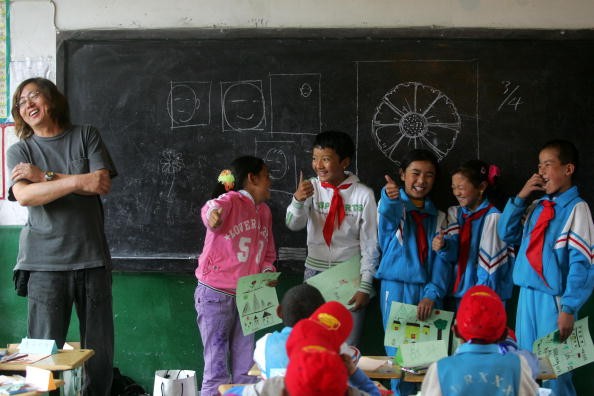According to a global survey conducted by the Organization for Economic Cooperation and Development (OECD), middle-school teachers in Shanghai are better educated compared with their counterparts in other nations, Shanghai Daily reported.
First launched in 2008, OECD's Teaching and Learning International Survey (TALIS) aims to assess "teachers' professional development, teaching practices and working environment" in 24 countries and regions, the article said.
In its second edition, which was conducted between 2013 and 2015, the survey included a total of 28 countries and regions. Shanghai participated for the first time in 2015.
Zhang Minxuan, director of the city's TALIS program, said that "Shanghai teachers drew considerable attention from all over the world after 15-year-old students in Shanghai won first place in the Program for International Student Assessment (PISA) tests."
"People from other countries want to know how our teachers can have those achievements and the survey may shed some light on it," Zhang added.
The survey shows that out of the 3,925 polled teachers from 199 randomly selected Shanghai-located middle schools, 98.5 percent have at least finished a bachelor's degree. Topping the survey held between 2013 and 2014, the city scored significantly higher (92.7 percent) than the average in the 38 countries.
Shanghai posted 98 percent in learning educational methodology and 96 percent in mastering teaching disciplines. The global averages for these two are 94 and 90 percent, respectively.
The survey also reported that over 99 percent of Shanghai teachers said that they have undergone induction training upon entering middle schools as new teachers. The percentage was way higher than the 80 percent international average.
All of the polled Shanghai teachers also revealed that they were guided by a mentor who teaches the same courses as theirs. Meanwhile, 70 percent noted that they received guidance from people who have experience in their respective fields.
The OECD survey also found that teachers in the Chinese city are more engaged in professional discussions and are more observant in their fellow teachers' works
The recent survey results come as a surprise as people in other nations often tag Chinese education as "rote-learning," the article said.



























